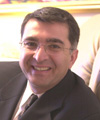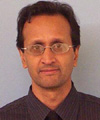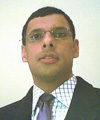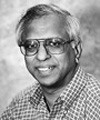CV
 President and Chief Research Officer, RIETI
President and Chief Research Officer, RIETI
Henri and Tomoye Takahashi Professor, Japanese Studies, Stanford University
Dr. Aoki has taught at Tokyo, Keio and Kyoto Universities, as well as Harvard University and the London School of Economics. He was named Professor Emeritus of Kyoto University. He specializes in comparative institutional analysis, corporate governance, the theory of the firm, and the Japanese economy. He has published numerous works, including Toward a Comparative Institutional Analysis (MIT Press, 2001).
 Faculty Fellow, RIETI
Faculty Fellow, RIETI
Professor of Political Science, Faculty of Law, Keio University
Dr. Soeya, on top of RIETI and Keio University, has served as a visiting professor at Australian National University and Yonsei University (Korea), a visiting fellow at the East-West Center and the Institute of Southeast Asian Studies (Singapore), and a researcher at the Research Institute for Peace and Security (Tokyo). He specializes in politics and security in the Asia-Pacific region, US-China-Japan relations, Japan's external relations and diplomacy. His publications in English include Japan's Economic Diplomacy with China 1945-1978 (Oxford University Press, 1998), and United Nation's Peace-keeping Operations: A Guide to Japanese Politics (co-authored with L. William Heinrich and Akiko Shibata, United Nations University Press, 1999).
Benjamin L. SELF
 Senior Associate, The Henry L. Stimson Center
Senior Associate, The Henry L. Stimson Center
Adjunct Lecturer, American University School of International Service
Dr. Self has served as a lecturer, Temple University Japan, and Asia Program Associate at Woodrow Wilson International Center for Scholars, and also a visiting research fellow at Keio University. He is participating in a lot of projects including Regional Security Dynamics in Asia - Japan, Confidence-Building Measures in East Asia - Japan, An Alliance for Engagement: Building Cooperation in Security Relations with China. His publications are An Alliance for Engagement: Building Cooperation in Security Relations with China (2002), "Japan's True Strength: Military and Diplomacy; Formation of a Domestic Consensus is the Issue", in Ronza (2002).
Mehrdad HAGHAYEGHI
 Associate Professor of Political Science, Department of Political Science, Southwest Missouri State University
Associate Professor of Political Science, Department of Political Science, Southwest Missouri State University
From 1997 to 2000, Dr. Haghayeghi was a research analyst for the Economist Intelligence Unit of London working on Kazakhstan, Kyrgyzstan, and Tajikistan. He has been a consultant to the United Nations, State Department, the National Intelligence Council, United States Agency for International Development, Soros Foundation, British Broadcasting Corporation, and Radio Free Europe. His research and teaching interests include comparative politics, Middle Eastern and Central Asian studies. He has published a book Islam and Politics in Central Asia (New York: St. Martin's Press, 1995).
Greg FRY
 Director of Studies of the Graduate Studies in International Affairs Program, the Research School of Pacific and Asian Studies, Australian National University
Director of Studies of the Graduate Studies in International Affairs Program, the Research School of Pacific and Asian Studies, Australian National University
Mr. Fry has held visiting teaching appointments at the University of Hawaii and the University of the South Pacific and a visiting research appointment at the Peace Research Institute, Oslo. His publications focus on various aspects of the politics, security and international relations of the Southwest Pacific region as well as on Australian foreign policy and global politics. His recent publications include Contending Images of World Politics
(coeditor with Jacinta O'Hagan, MacMillan, London, 2000), "Conflict and Conflict Resolution in the South Pacific-Regional Dimensions", in Dialogue (2000).
Kanti BAJPAI
 Professor of International Politics in the Centre for International Politics, Organization and Disarmament of the School of International Studies, Jawaharlal Nehru University
Professor of International Politics in the Centre for International Politics, Organization and Disarmament of the School of International Studies, Jawaharlal Nehru University
Dr. Bajpai was a resident fellow of the Rajiv Gandhi Institute for Contemporary Studies, Rajiv Gandhi Foundation and as a visiting fellow at the Joan B. Kroc Institute, University of Notre Dame and at the Brookings Institutions. His research and teaching interests include international relations theory, international security, security issues in the Asia-Pacific, regional cooperation in South Asia, and Indian security and foreign policy. His most recent book is Roots of Terrorism (Penguin India, 2002). He has co-edited a number of volumes including Interpreting World Politics, South Asia After the Cold War (Sage Publications, 1995).
Derek da CUNHA
 Senior Fellow, the Institute of Southeast Asian Studies
Senior Fellow, the Institute of Southeast Asian Studies
Co-ordinator, the Institute's Regional Strategic and Political Studies (RSPS) program
Dr. da Cunha has been with ISEAS since late 1989, joining the Institute as a research associate. His research interests are fairly eclectic, ranging from defense and security issues related to Southeast Asia and the wider Asia-Pacific to Singapore politics and society. His publications include the edited volumes, Southeast Asian Perspectives on Security (ISEAS, 2000, 204pp), The Evolving Pacific Power Structure (ISEAS, 1996, 261pp), and Singapore in the New Millennium: Challenges Facing the City-State (ISEAS, 2002, 281pp).
Muthiah ALAGAPPA
 Director, East-West Center Washington
Director, East-West Center Washington
Dr. Alagappa is a tenured senior fellow at the East-West Center and has been a visiting professor at Columbia, Stanford, and Keio Universities. His research interests are international politics and security, conflict management, and domestic political change including democratization and political legitimacy in Asia. His recent publications include Asian Security Order: Instrumental and Normative Features (Stanford University Press, 2003), Coercion and Governance: The Declining Political Role of the Military in Asia (Stanford University Press, 2001), Taiwan's Presidential Politics: Democratization and Cross-Strait Relations in the Twenty-first Century (M.E. Sharpe).
 Faculty Fellow, RIETI
Faculty Fellow, RIETI
Professor of The Center for Southeast Asian Studies, Kyoto University
Prof. Shiraishi worked as an assistant professor at Tokyo University, and a professor at Cornell University. He has expertise in government and politics in East Asia. His publications include An Age in Motion (Ithaca: Cornell University Press, 1990), Network Power: Japan and Asia (coedited with Peter Katzenstein, Ithaca:Cornell University Press, 1997).
Chung-in MOON
 Professor of Political Science, Yonsei University
Professor of Political Science, Yonsei University
Visiting Professor, Keio University
Prof. Moon is an advisor to the office of the President of Korea as well as the Ministries of National Defense and Foreign Affairs and Trade. He is also South Korea's representative to the Eminent Expert Group of the ASEAN Regional Forum (ARF) and a vice president of the International Studies Association (North America). He taught at the Williams College, University of Kentucky, UCSD, and Duke University. He has published 19 books and over 180 articles in edited volume and scholarly journals such as World Politics, International Studies Quarterly, and Millennium. His most recent publications include Democracy and Development" (UN University, 2002, co-edited with Atul Kohli) and Korean Politics: An Introduction (State University of New York Press, 2001).

